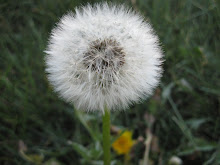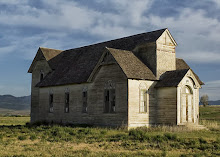Wednesday, November 4, 2009
The Woman Behind "Little Women"
So excited about this! Mark December 28th on your calendar.
UPDATE: watch an interview about the series and directors statement.
"On December 28, "American Masters" will premiere "Louisa May Alcott: The Woman Behind 'Little Women,'" based on the biography by Harriet Reisen." (from bookstudio.com)
The author discusses the book here.
Follow the book on Twitter. It is available to buy now.
Text of article:
Louisa May Alcott biography details author's lifelong struggles
By JOYCE SÁENZ HARRIS / Special Contributor to The Dallas Morning News
"Two women, both closely identified with the American abolitionist movement, wrote enormously influential best-sellers in the mid-1800s. The first, Harriet Beecher Stowe's anti-slavery epic Uncle Tom's Cabin, is acknowledged as a philosophical precursor to the Civil War, but it is barely read today except by scholars of 19th-century literary feminism.The second novel, Louisa May Alcott's Little Women, has never been out of print since it was first published in 1868. Its tomboyish, restless heroine, Jo March, is considered a female icon worldwide. The domestic drama of the poor but proud March family still entertains modern readers from ages 8 to 80, and Little Women has frequently been adapted for stage and screen over the past century.
Moreover, its author evolved into an object of increasing literary fascination over the past 35 years, as it became clear that Alcott was much more than, as she disparagingly put it, a writer of "moral tales for children."
In her new biography of Alcott (the basis of a PBS American Masters documentary to air Dec. 28), Harriet Reisen puts 20 years of study into a highly readable story. She casts a revealing new light upon an ambitious woman who was very much like her literary alter ego – except that Louisa Alcott's life was harder, unhappier and far less healthy than Jo March's.
As the daughter of Transcendentalist philosopher Bronson Alcott, Louisa moved in literary circles from childhood. But her charming, impractical father seldom provided financially for his family. The Alcotts moved frequently, evading debtors and staying afloat with the generosity of family and friends.
Often, their meals were bread and water. The work of keeping the family fed, clothed and sheltered fell mostly upon Louisa, her three sisters and their mother. Louisa, strong-willed and driven by a yearning for travel and luxury, helped support her family with her "scribbling" even as a teenager.
For 20 years, she wrote dozens of pseudonymous Gothic thrillers for pulp magazines and papers – the same dark, "blood-and-thunder" stories that Jo March wrote for pay. "I'll be rich and famous and happy before I die, see if I won't!" Alcott declared.
She won notice under her own name, especially with Hospital Sketches, stories from her months as a Civil War nurse. But Little Women made her a celebrity at home and abroad. Alcott wrote novels for adults, too, but her juvenile works – notably the Little Women sequels Little Men and Jo's Boys, Jack and Jill, Eight Cousins and its sequel Rose in Bloom – made her fortune and let her support her entire family. But she never found lasting romance or true happiness.
Throughout her life, Alcott was haunted by death and illness. Family deaths were often retold in her saga of the March family, but she could not put the loss of her artist sister May ("Amy") into her final book, Jo's Boys. She became the guardian of May's baby daughter, Lulu, and raised her namesake during the last decade of her life.
Despite the wealth she achieved, she worked almost incessantly except when her poor health interfered. Reisen believes that Alcott suffered from lupus, a debilitating auto-immune disorder.
When she died in March 1888, after a probable stroke, she was 55. Alcott never knew she had outlived her father by only two days."
Interview Outtakes:
Subscribe to:
Post Comments (Atom)












































































No comments:
Post a Comment